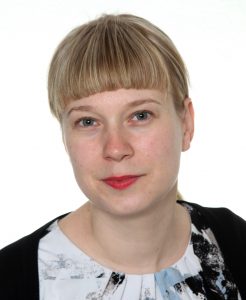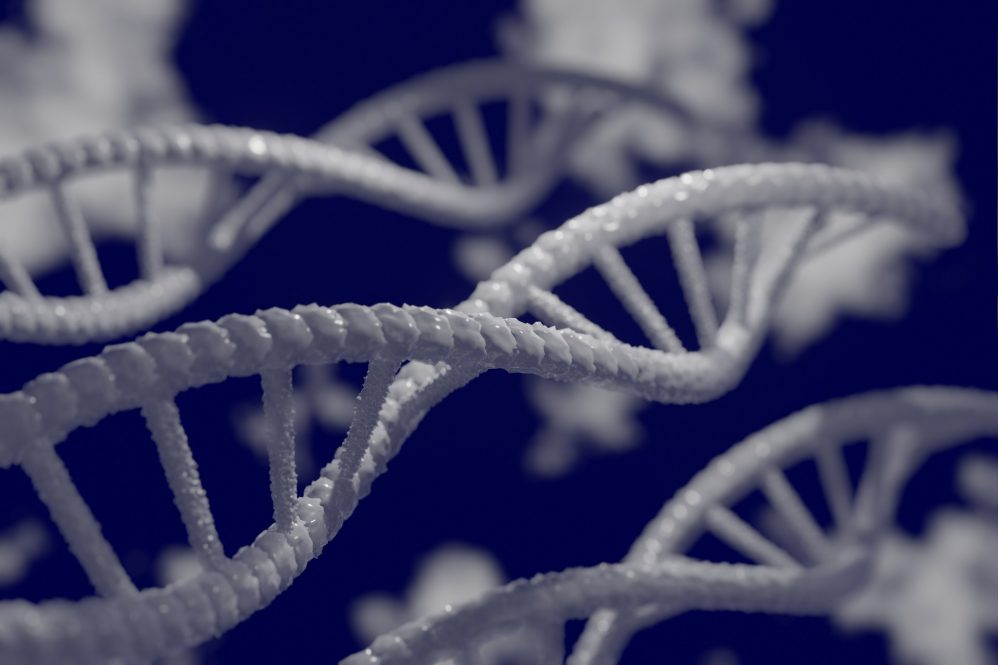Jelena Erceg, assistant professor in the Department of Molecular and Cell Biology and Institute for Systems Genomics, is working on a $2 million R35 MIRA (Maximizing Investigators’ Research Award for Early Stage Investigators) award from the National Institutes of Health (NIH), National Institute of General Medical Sciences (NIGMS) to study the role of parental genome folding during development. Erceg also holds a joint appointment with the UConn Health Department of Genetics and Genome Sciences.
Each copy of our DNA, stretched out end-to-end, is about six feet long. But it needs to fit into the nucleus of each cell which is about 10 microns wide — about 250 times smaller than a single raindrop. This problem is solved by a process known as genome folding.

Genome folding is the complex way our cells fold up our long DNA strands to fit them in that tiny nucleus. The key is that our cells still need to be able to access the DNA during development and throughout our lives.
If something goes wrong in this intricate folding process, it can impact the interactions between genes and the regulatory elements that determine how much and when genes are expressed. This can cause issues like malformed limbs or cancers.
Scientists are working on understanding this complicated problem from many angles. Erceg lab is focusing on the role of maternal versus paternal copies of our genes.
“There are examples that changing folding can affect the function of the underlying genes, but there are also opposite examples that if you do change folding you may not change gene expression,” Erceg says. “So, it’s a bit of a controversy as well in the field that we want to enrich by adding a layer of looking into parental genomes.”
Every cell in the human body has two pairs of DNA – one maternal and one paternal. This is why we may inherit our mom’s eye color but dad’s hair color. But these differences can also have implications for disease and development. Even a minor change in the DNA from one parent can change how our DNA is folded, leading to disease.
The main aim of Erceg’s study is to understand how parental genomes are folded and regulated during development, from the initial zygote to differentiation into every type of cell in our body.
Erceg will also consider the tissue environment of the cells to determine how that influences genome folding.
“It’s important to look at cells in a tissue and not just as isolated single cells without considering the context in which they normally operate,” Erceg says.
The final aim of Erceg’s study will be to assess the impact of heterozygosity on genome folding and disease susceptibility.
Almost half of the human genome is filled with repeats. Erceg is interested in seeing where and how these repeats differ between maternal and paternal genomes and what that means for health.
To study these aims, Erceg lab will use fruit flies. Fruit files are a proven model for studying genetics because you can get a new generation of flies in just a few days. Additionally, they only have four sets of chromosomes and scientists already know the sequence of their genome, making it easy to manipulate their DNA and observe changes.
Erceg will use a technology known as Hi-C which will allow her to use single base pair differences to tell chromosomes apart to determine which is maternal versus paternal. Then Erceg can directly observe how the chromosomes interact with each other in the nucleus.
“We will be using this genomics tool to get a whole genome-wide picture,” Erceg says. “And that is very powerful, because you can see many interactions at the same time and combine it with information on the activity of the genome.”
She will also use microscopy to paint the chromosomes coming from the mother and father in different ways. This will allow her to visualize how these chromosomes interact and function in different cell types as well as measure the exact folding dimensions.
“What microscopy brings is that you’re starting to see the pictures you’re starting to look at the actual folding in 3D,” Erceg says.
Better understanding the relationship between genome folding and how we inherit DNA from each parent can provide a stronger foundation for personalized genome medicine for chromosome-based diseases.
“Every individual is different, so those changes that maybe one sibling carries another sibling carries a slightly different thing,” Erceg says. “Going into the field of personalized genome medicine could help with chromosome-based human diseases.”



